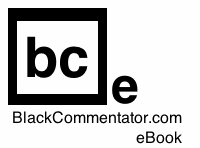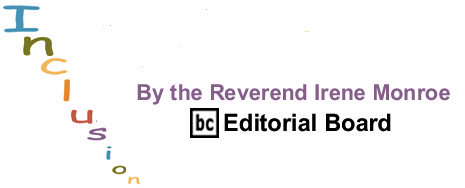
Haiti’s LGBTQ Accepting Vodou Societies


As I
celebrate Black History Month, I’d like to recognize one of my indigenous West
African ancestral religions that’s not homophobic - even if some of the
practitioners are.
To the
disbelief of many - it’s Vodun.
Haitian Vodou is an ancestral folk religion whose tenets have
always been queer-friendly,
accepting people of all
sexual orientations and gender expressions.
It’s just
one of the religions brought to the
Misconstrued
by racist images of zombies rising from graves, jungle drums, cannibalism, orgiastic ceremonies ritualizing
malevolent powers of black magic, and by today’s popular culture, images courtesy of Hollywood’s
and New Orleans’ tourism industry, Vodou is a persecuted and misunderstood
religion. The Catholic Church demonized Vodou during slavery, and so did
As a
monotheistic religion, Vodou believes in one God, and
that individual behavior
is guided by spirits called “loas” or “lwas.” The spirits derive from the belief traditions of the African people of the former
Gay males in Haitian Vodou embrace the divine protection of Erzulie Freda, the feminine spirit of love and sexuality. Gay males are allowed to imitate and worship her. Lesbians are under the patronage of Erzulie Dantor, a fierce protector of women and children experiencing domestic violence. Erzulie Dantor is bisexual and prefers the company women. Labalèn is a gynandrous or intersexual spirit. And LaSirèn, who is the Vodou analogue of Yemayá, a maternal spirit, is a revered transgender.
But let’s
not be fooled. Openly gay Haitian men in
Ironically,
homosexuality has been legal in
How are
However, as
in all repressively homophobic cultures, LGBTQ people have always found ways to
express and to live out their true authentic lives. In
For example,
Pétionville, an upscale suburb of
For the
poorer classes of LGBTQ Haitians who live, work and socialize in the densely
populated and improvised capitol city of Port-au-Prince, discrimination on the
basis of their sexual orientation and gender expressions is commonplace. The
2002 documentary, “ Des Hommes et Dieux
(Of Men and Gods)” by anthropologist, Anne Lescot,
exposed the daily struggles of Haitian transwomen. Blondine in the film said, “When people insult me because I
wear a dress I am not ashamed of how I am. Masisis
(gay males) can’t walk down the street in a wig and dress.” But when Blondine is at a Vodou service he
feels free.
Poorer
classes of LGBTQ Haitians, like Blondine, do have at
least two ways to openly express and celebrate who they are - in Vodou and in Rara festivals.
Rara
Festivals, a yearly festival that begins following Carnival belong to the
peasant and urban poor of

BlackCommentator.com Editorial Board member and Columnist, the Rev. Irene Monroe, is a religion columnist, theologian, and public speaker. She is the Coordinator of the African-American Roundtable of the Center for Lesbian and Gay Studies in Religion and Ministry (CLGS) at the Pacific School of Religion. A native of Brooklyn, Rev. Monroe is a graduate from Wellesley College and Union Theological Seminary at Columbia University, and served as a pastor at an African-American church before coming to Harvard Divinity School for her doctorate as a Ford Fellow. She was recently named to MSNBC’s list of 10 Black Women You Should Know. Reverend Monroe is the author of Let Your Light Shine Like a Rainbow Always: Meditations on Bible Prayers for Not’So’Everyday Moments. As an African-American feminist theologian, she speaks for a sector of society that is frequently invisible. Her website is irenemonroe.com. Click here to contact the Rev. Monroe.





